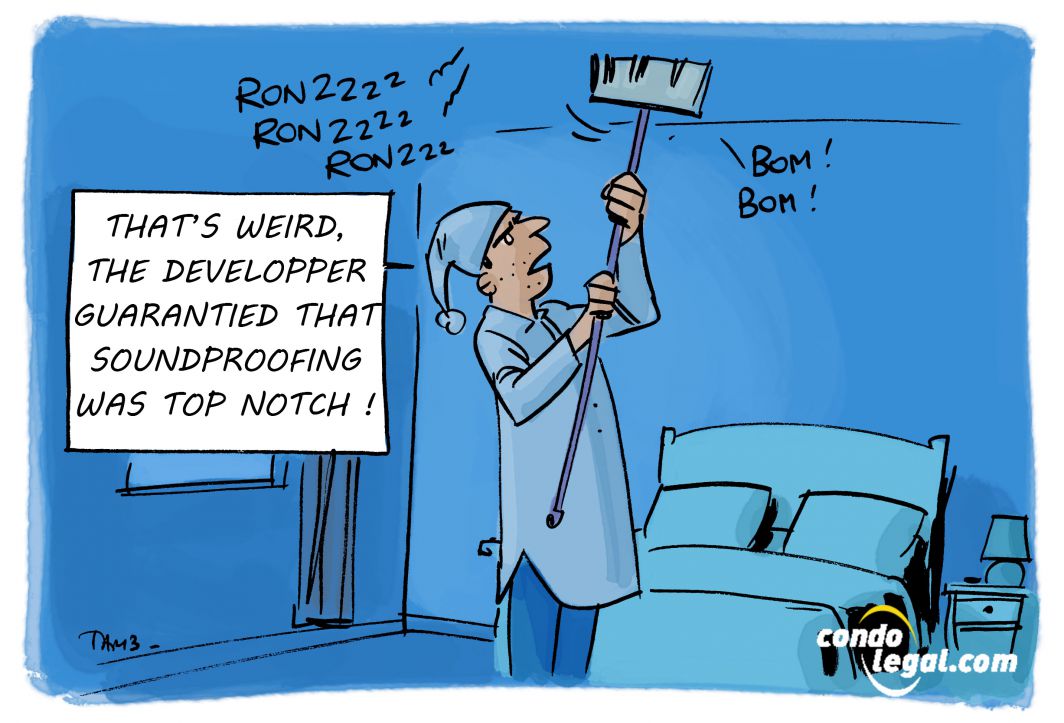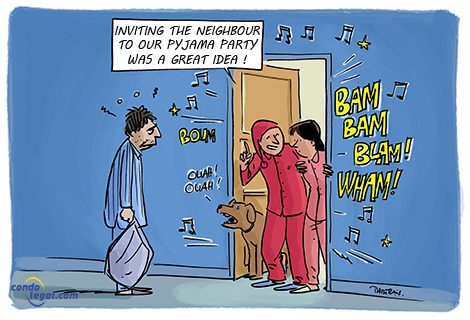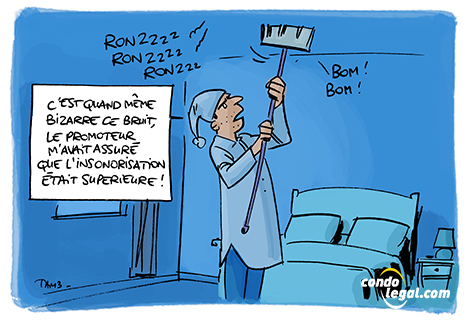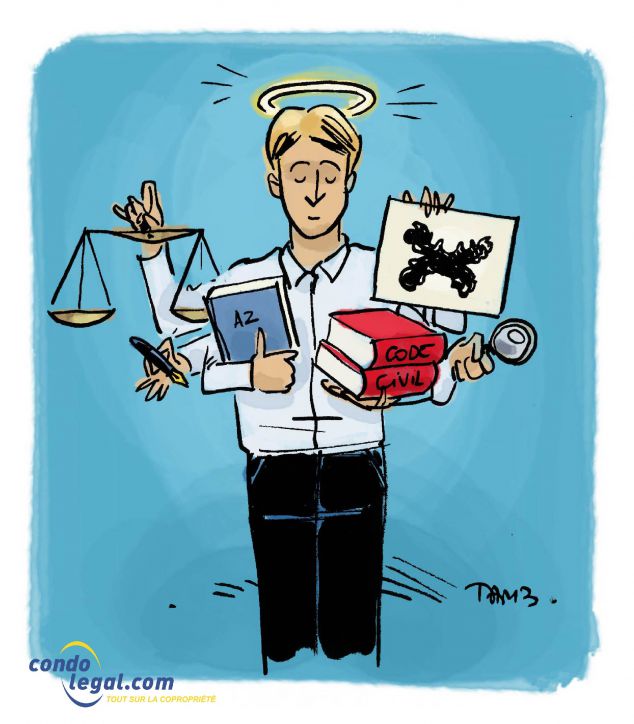Date published: 24/12/2024
How can I manage the nightmare of noise in my co-ownership?
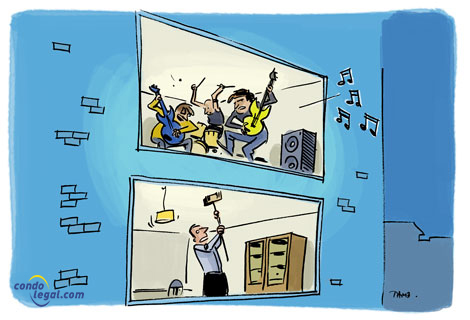
In my building, the soundproofing is inadequate, amplifying the noise from neighboring apartments. I am constantly affected by the nuisance caused by the incessant barking of my upstairs neighbors' dogs and their excessively loud music, which disrupts my quality of life. My neighbor, on the other hand, faces a similar issue: her upstairs neighbors recently installed hardwood flooring, and every step echoes loudly, disturbing her peace. We are seeking solutions to put an end to these persistent noise disturbances. Question: What are our possible remedies to address this issue?
Answer: Excessive noise in a co-ownership property, such as the ones you describe, can result from several causes, including:
- Insufficient soundproofing during the building’s construction;
- Modifications within a unit that disrupted the acoustic balance;
- Inappropriate behavior by the occupants.
Proposed solutions
Several actions can be taken depending on the nature of the nuisances:
-
Document the noise:
- Have a bailiff establish a formal report, which serves as strong and often irrefutable evidence.
- Hire an acoustics specialist to document the disturbances and identify the noise sources.
-
File a complaint:
- If the noise involves nighttime disturbances or other neighborhood nuisances, file a complaint with municipal authorities. If applicable, the offending party may face a fine.
-
Initiating legal proceedings:
-
Request intervention from the syndicate:
-
Submit a request to the syndicate to demand the cessation of noise disturbances. If the perpetrator is a tenant, the syndicate can, after notifying the owner and tenant, request the resiliation of the lease for the concerned unit, pursuant to article 1079 of the Civil Code of Québec, when the tenant’s actions cause serious harm to another co-owner or occupant of the building.
- Request the syndicate to undertake corrective work if the acoustic issues originate from common areas. For instance:
- Add soundproofing materials to ceilings or shared walls;
- Insulate floors in common portions, such as hallways, to limit noise transmission;
- Install adequate insulation in ventilation ducts or plumbing columns causing noise;
- Reduce noise from mechanical equipment, such as elevators or ventilation systems.
Noise disturbances: Legal guidance in co-ownership
Court decisions provide essential benchmarks for addressing noise disturbances in co-ownership. For example, in Fournier v. Le Siège ([1986] R.D.I. 789 (C.S.)), the Superior Court prohibited the use of a commercial sewing machine in a residential unit due to the noise it caused. In Bergeron c. Martin, the operation of a day nursery causing excessive noise and disrupting the tranquility was deemed incompatible with the residential purpose of the building, leading to an injunction to cease the activity. Similarly, in Schiff c. Kodjo, the Court of Québec ordered co-owner landlords to compensate a neighbor for repeated noise disturbances caused by their tenant, finding that the noise far exceeded normal neighborhood inconveniences. However, courts also emphasize that co-owners must tolerate normal inconveniences of urban living, as demonstrated in Noël c. Lapointe, where repeated and unreasonable complaints were deemed abusive
 WHAT YOU SHOULD KNOW ! Several remedies are available in cases of noise disturbances. Consulting a specialist or an acoustical engineer can help identify, assess, and document the source of the problem to support a potential legal action.
WHAT YOU SHOULD KNOW ! Several remedies are available in cases of noise disturbances. Consulting a specialist or an acoustical engineer can help identify, assess, and document the source of the problem to support a potential legal action.
 WHAT TO KEEP IN MIND: A bailiff's report can capture noise disturbances over time and serve as solid evidence that is difficult to dispute, potentially deterring offending neighbors.
WHAT TO KEEP IN MIND: A bailiff's report can capture noise disturbances over time and serve as solid evidence that is difficult to dispute, potentially deterring offending neighbors.
 WARNING! The co-ownership syndicate is responsible for damages caused by design flaws, construction defects, or lack of maintenance of common areas. If the syndicate fails to fulfill its obligations, it may be held liable, and a co-owner can initiate legal action to seek compensation.
WARNING! The co-ownership syndicate is responsible for damages caused by design flaws, construction defects, or lack of maintenance of common areas. If the syndicate fails to fulfill its obligations, it may be held liable, and a co-owner can initiate legal action to seek compensation.
Back to questions and answers
